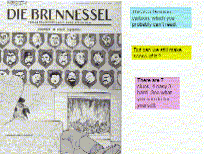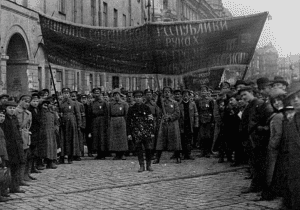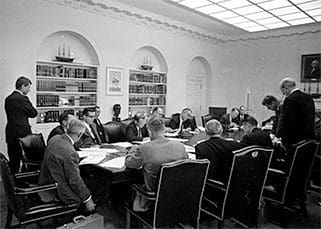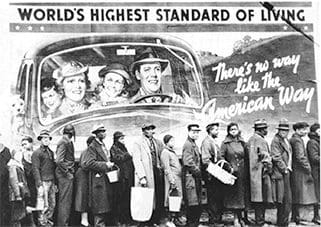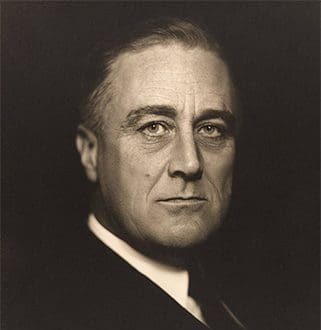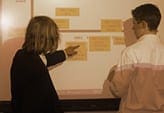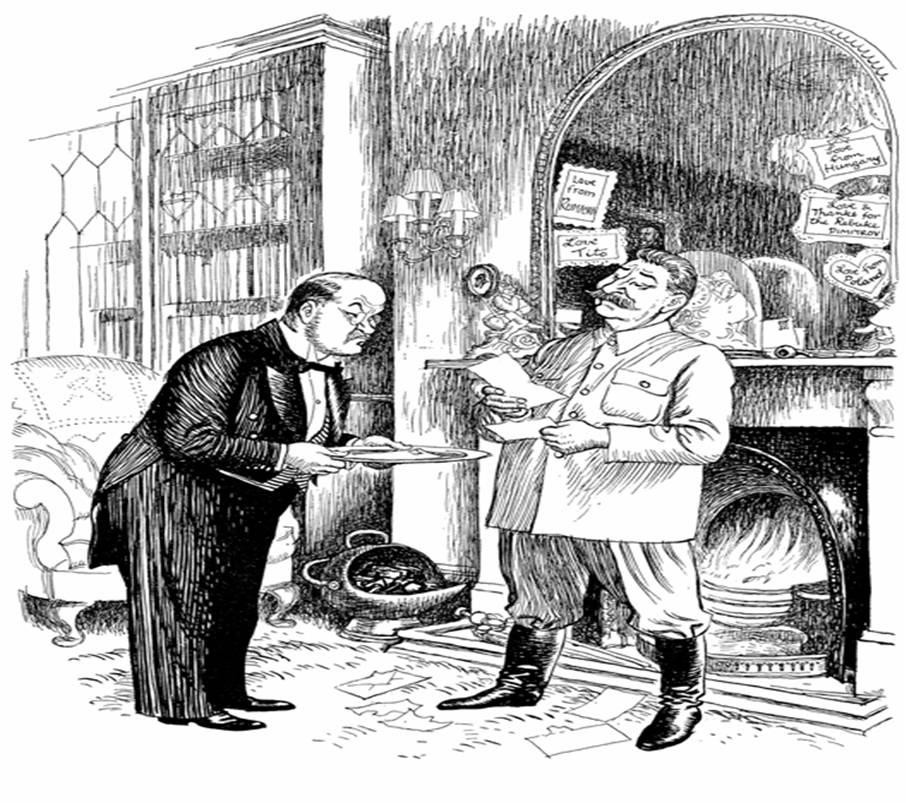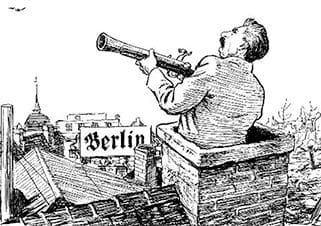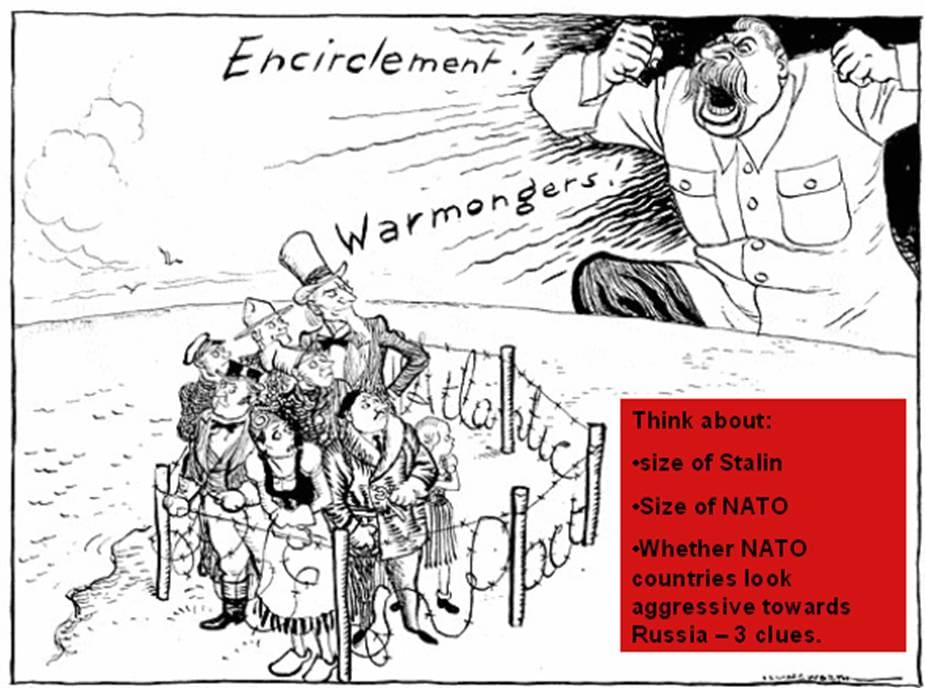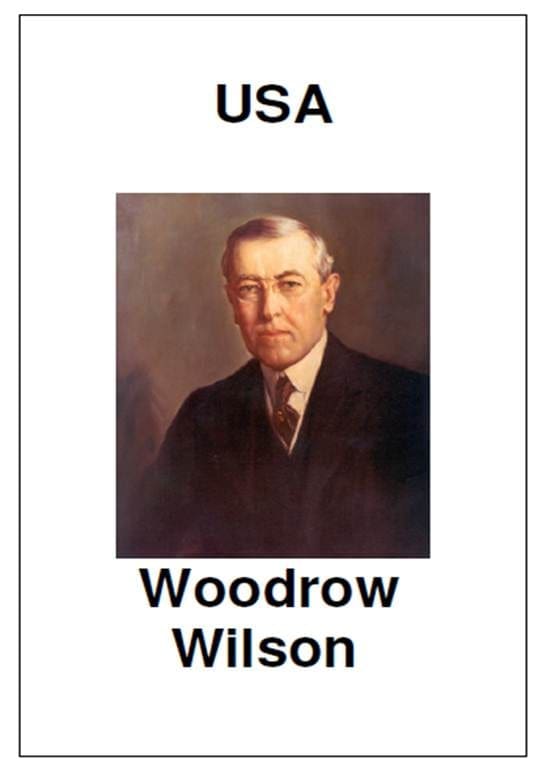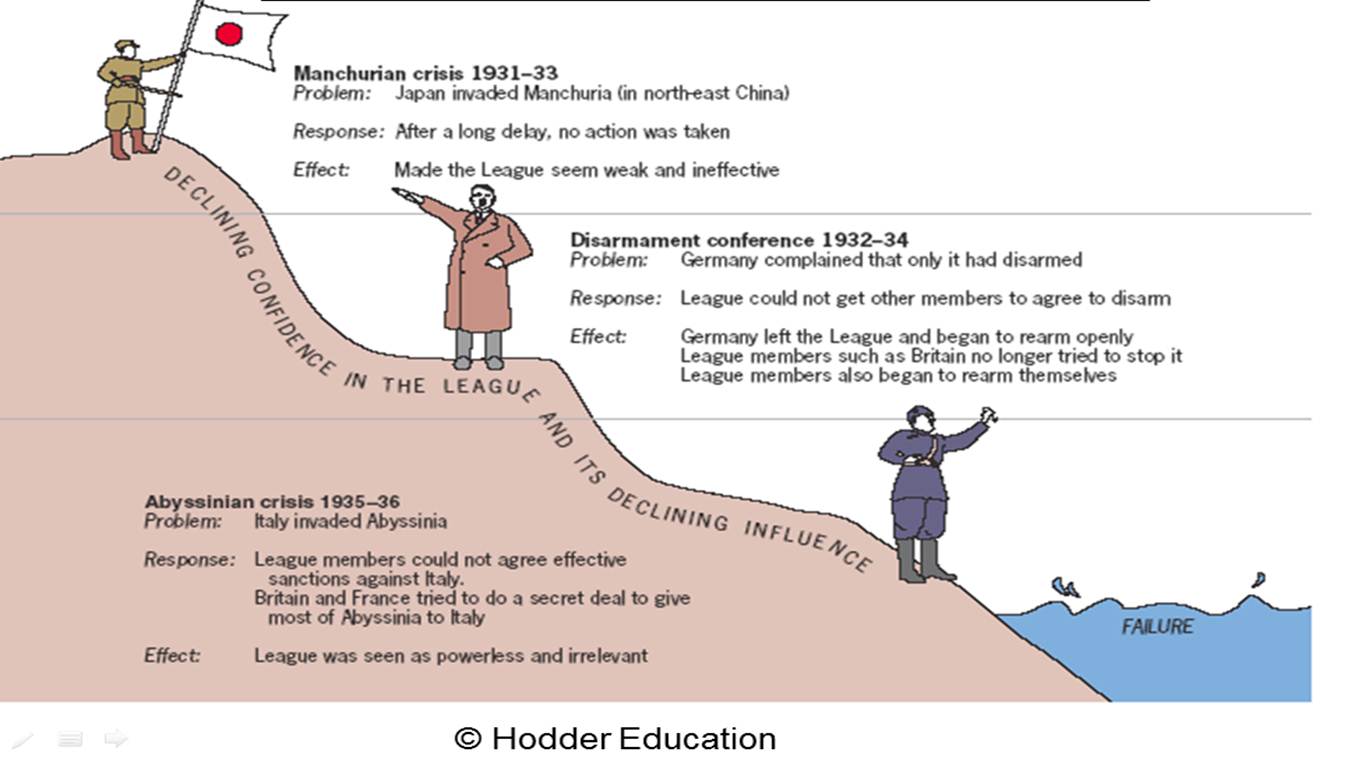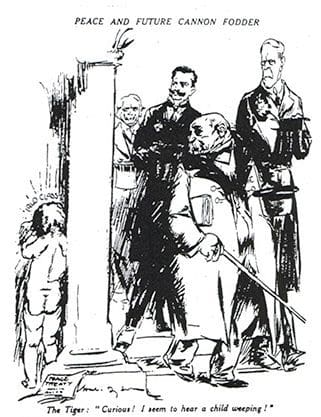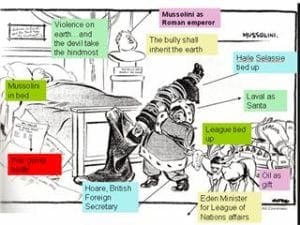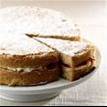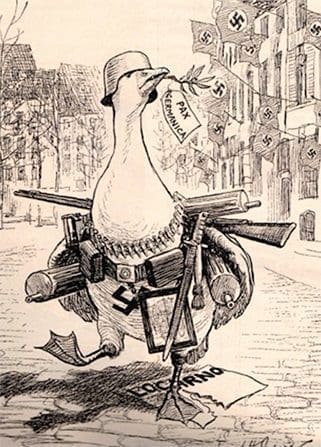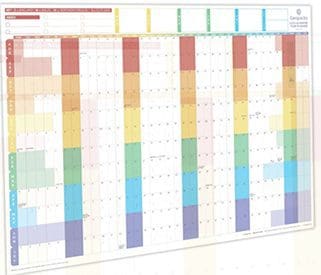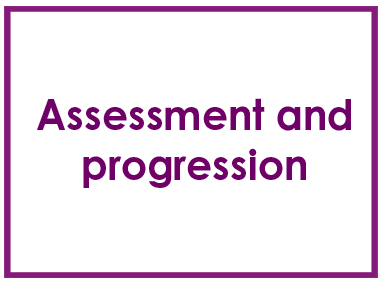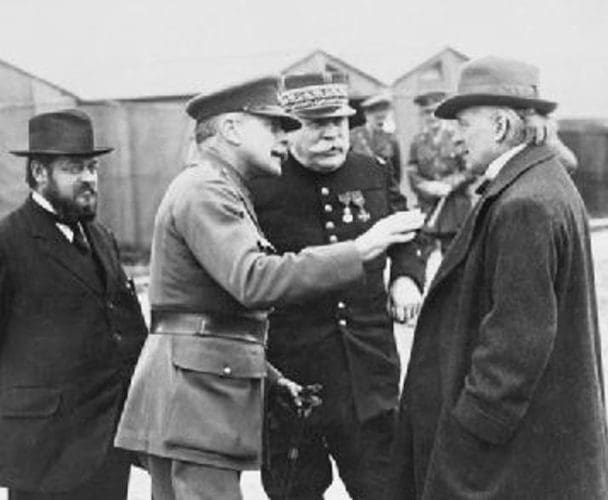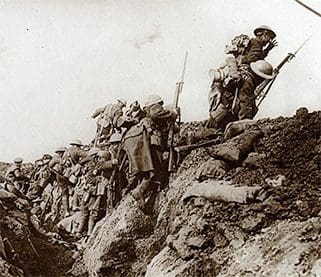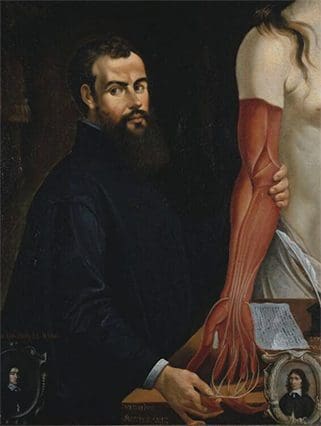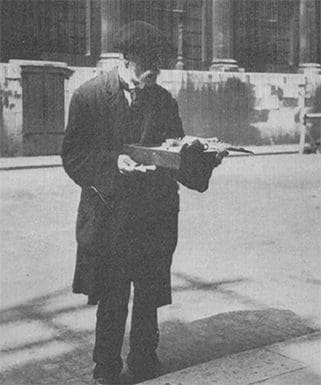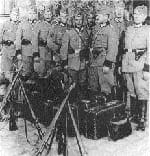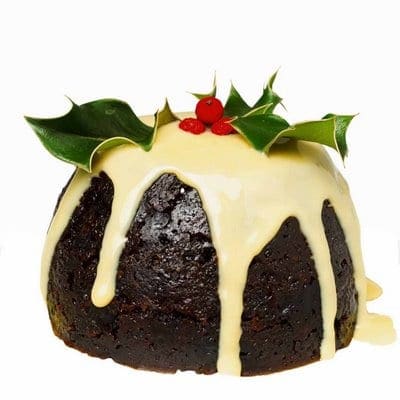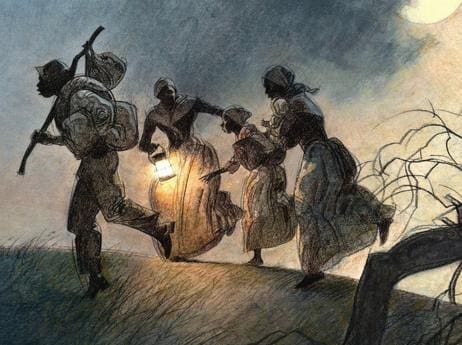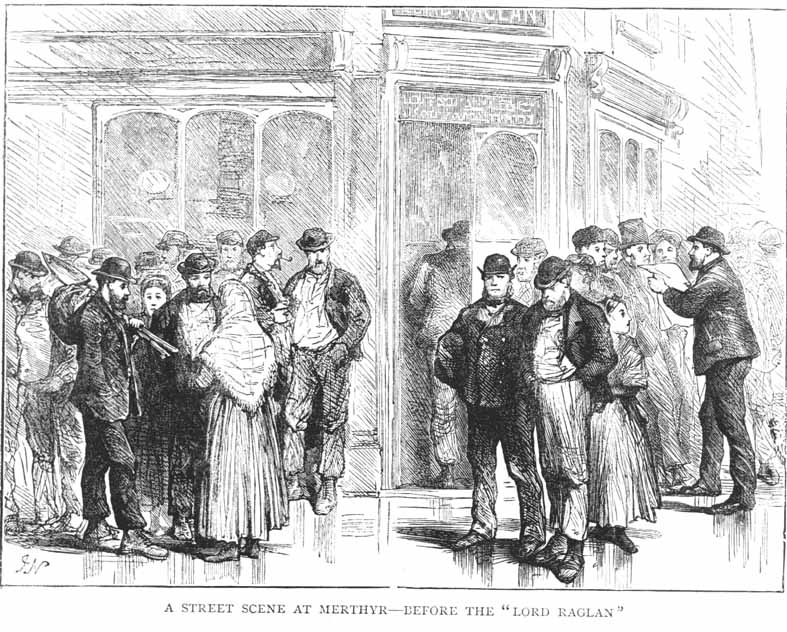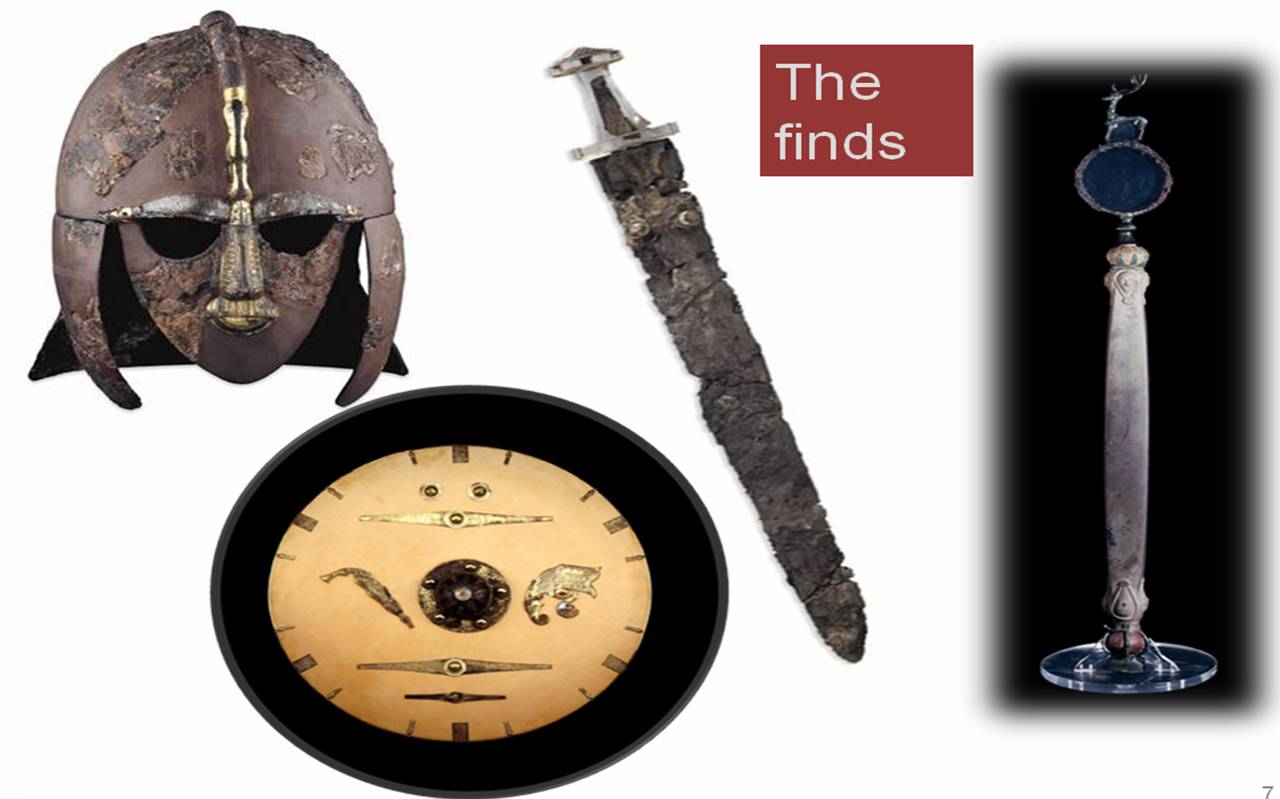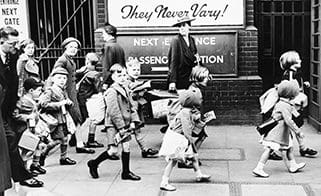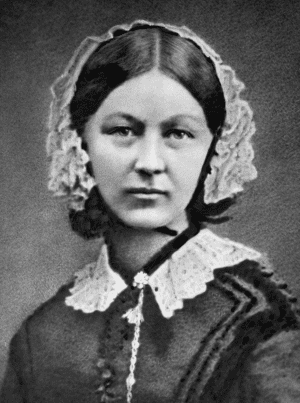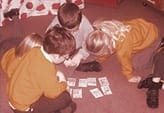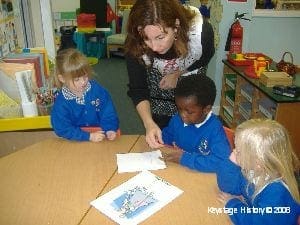Blog
Interpreting a political cartoon of Stalin
This lesson revolves around a cartoon annotation and inference activity leading to a detailed and authoritative caption. It concludes the…
Read MoreWhy did the Reds win the Russian Civil War? A history mystery to explain why the reds were able to SLUG it out
This lesson encourages students to take their understanding of the events of the Russian Civil War to a new level…
Read MoreSMART TASK Key Stage 4 – Kennedy and the Cuban Missile Crisis
With the 50th anniversary of the Cuban Missile crisis in the news, it is worth spending time reviewing Kennedy’s reputation….
Read MoreNew Deal or No Deal? How has the New Deal been criticised?
This lesson is an active one in which students co-operate in order to put the best case they can against…
Read MoreWhy was there a boom in the US economy in the 1920s?
This lesson was designed for Y10 students on the C/D borderline who were underachieving and were falling down on the…
Read MoreRoosevelt and the 1936 election: can you write his manifesto?
It is the year 1936 and Roosevelt wants to be re-elected. Students work in groups to create his campaign manifesto…
Read MoreRecommended Resources
The main headings focus on the historical background to Bloody Sunday and are organized as below. Division & Peace Ireland’s…
Read MoreSMART TASK Russian take-over of Eastern Europe, 1946-9: Interpreting a political cartoon.
This simple activity encourages students to look at all the clues the cartoon provides, one at a time. As they…
Read MoreSMART TASK Key Stage 4 Deciphering a Cold War cartoon, using the slow reveal technique.
The interactive PowerPoint presentation of the famous Stalin’ The Birdwatcher’ cartoon encourages students to add layers of meaning as more…
Read MoreSMART TASK Key Stage 4: The Cuban Missile Crisis. Who was the real winner, Kennedy or Khrushchev?
Coming at the end of a study of the Cuban Missile crisis, students have to consider the ways in which…
Read MoreWho was more responsible for increasing Cold War tension between 1945 and 1949, the USA or the USSR?
This lesson challenges students to prepare a court case against both countries. The case against the USA will be made…
Read MoreWhy did the US lose the war in Vietnam? A piece of cake?
In this lesson students focus on moving their understanding of the reasons for US defeat from simply listing and grouping,…
Read MoreSMART TASK: Who said what at Versailles? A fun competitive team game with a serious purpose
This simple activity asks students to think who would be the most likely person to make this statement at the…
Read MoreSMART TASK: At what stage would you say it was obvious that the League of Nations would fail to keep peace?
This short task and associated homework asks students to beat the textbook. First they are reminded of the record of…
Read MoreCould the Treaty of Versailles be justified at the time?
This lesson was taught by Claire Conley-Harper and her excellent team of history teachers at Court Moor School in Fleet,…
Read MoreWas it the Manchurian or the Abyssinian crisis that spelled the end of the League of Nations?
There is a website that offers GCSE students this essay but at a cost. It is fairly accurately called www.cheat.com….
Read MoreWhy did the League of Nations fail?
It’s a piece of cake (F.A.I.L.U.R.E. is not an option) Students have already studied the major episodes in the history…
Read MoreInvasion of the Rhineland 1936 – a study in political cartoon analysis
All too often when the students see political cartoons in textbooks they focus on an oval shape in the centre…
Read MoreOutstanding Lessons: Key Stage 4
There is probably more material already on the web for GCSE history teaching at KS4 than for any other key…
Read MoreForward planning in history at Key Stage 4
There are probably four separate strands that you need to weave into your forward planning. To start with there will…
Read MoreHow might history targets be shared with students at Key Stage 4?
Target setting has now become a central feature of teachers’ professional life. With the advent of some pretty robust data…
Read MoreProgression in history at KS4 – general
Little has been written about progression in history at Key Stage 4, almost as if following the GCSE specification would…
Read MoreAPP in history: where are we now? Some key questions answered
Q1. What is APP? An old idea with a new name? A1. At present the plans to roll out APP across…
Read MoreProgression in history at KS 4 – skill specific
It is interesting to note that most of the recent focus on progression has been placed firmly on Key Stage…
Read MoreAssessment for learning at KS4
This section focuses mainly on peer assessment as I firmly believe that this is the best way forward at KS4. …
Read MoreJudging students’ work at KS4
Most teachers will be familiar with marking KS4 answers. It is far less tricky than it used to be, given…
Read MoreAssessment tasks in Key Stage 4 history
Now that all the exam boards make past papers available on-line, and that textbooks written by Chief Examiners all now…
Read MorePrinciples of assessment in history at KS4
The key issues to be aware of at Key Stage 4 relate mainly to the way students are involved in…
Read MoreExplaining why there were so many casualties on the first day of the Battle of the Somme. SMART TASK
This task, suitable for KS3 Year 9 or KS4 students, presents them with something of a conundrum. When the Allies…
Read MoreWhy are these accounts of the Battle of the Somme, written by the same person, so different? SMART TASK
This task, suitable for Y9 in KS3 or KS4, drives at the heart of source evaluation. Students explore two sources,…
Read MoreVesalius’ claim to fame. Using the B.A.D formula to prepare for a BBC interview
The BBC is making a documentary on Renaissance medicine in which they have devoted two minutes to the work of…
Read MorePrehistoric Medicine: Getting your GCSE course off to a great start
This lesson was taught by Mike Herrity when Head of History at Wildern School, Hedge End, near Southampton. On an…
Read MoreWhy was this World War One painting censored?
Students studying Britain during World War One, whether it be for AQA, OCR or Edexcel, need to know about censorship….
Read MoreHow have cartoonists portrayed the Liberals Old Age Pensions reforms?
This lesson takes a familiar cartoon but gives it an original twist. Instead of seeing the cartoon all at once,…
Read MoreBattalion 101. Why did they shoot? A history mystery
This lesson could be used as part of a Year 9 course or with the Germany module of Y10/11 SHP…
Read MoreWhat can we learn about the Empire from a Christmas pudding?
This lesson starts with a simple fun activity, working competitively in teams to locate the source of ingredients for an…
Read MoreWhat made runaway slaves successful?
This short enquiry enables pupils to come up with their own ideas about runaway slaves working from first hand evidence…
Read MoreIf life was so hard in Victorian cities, why did Wilf move his family there?
If life was so hard for families in the towns why did so many leave the countryside and move to…
Read MoreThe mystery of the empty Saxon grave
This highly engaging lesson places pupils in the role of detectives. After a short briefing they have to work out…
Read MoreEric the evacuee
Extending the BBC website on Eric the evacuee The BBC children’s history section has been in touch with the school…
Read MoreFlorence Nightingale Lesson and sample planner
Fighting Fit. What did Florence do to improve the lives of the soldiers when she arrived in the Crimea? One…
Read MoreLeadership in history
When looking at leadership in history a careful balance has to be created between offering generic advice (which you could…
Read MoreAPP in history: where are we now? Some key questions answered
APP in history: where are we now? Life after levels This section is no longer current, of course, so please…
Read MoreAssessment for learning in Primary history
Assessment for Learning is much vaunted and many faceted. If we break down what it means in its constituent parts,…
Read MoreTarget setting in history at Key Stage 1
The setting of targets with this age group for Foundation subjects is problematic., not least because pupils’ experience of history…
Read MoreProgression in history at Key Stage 1
The problem Trying to secure progression within your Key Stage 1 history curriculum is not always as easy as it…
Read MoreLong term planning for history at Key Stage 1
Superficially, Key Stage 1 seems the least complex history curriculum to plan because the burden of content to be covered…
Read MoreMedium-term planning for history at Key Stage 1
This part of the site contains a dozen detailed fully-developed enquiry-led, key question-driven medium term plans for all the major…
Read MoreShort-term planning in history at Key Stage 1
This site does not favour the publication of short-term planning, preferring instead to focus on very detailed medium-term planning and…
Read MoreCreativity in History at Key Stages 1 and 2
What follows below is an attempt to summarise the key points from recent research and to illustrate them with lively…
Read More
